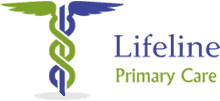Doctor’s Blogs at Lifeline in Lilburn Main, Lilburn Main Extension, Lilburn – Snellville, Sandy Springs, Stone Mountain, Duluth, Clarkston, Suwanee, and Norcross GA
Explore our blog for the latest updates in healthcare, treatments, and wellness, provided by our experienced primary care doctors at Lifeline Primary Care. For more information, contact us or schedule an appointment online. We have convenient locations to serve you in Lilburn Main, Lilburn Main Extension, Lilburn – Snellville, Sandy Springs, Stone Mountain, Duluth, Clarkston, Norcross GA, and Suwanee GA.
All clinics to resume regular hours + Rapid COVID-19 tests available at Lilburn and Clarkston clinics
To keep everyone safe, all patients must enter with a mask. Hand sanitizer is being offered at the door and staff will be checking temperatures before patients are seated. Symptomatic patients are also separated inside the clinic from asymptomatic patients as much as possible.
Introducing online video appointments from Lifeline Primary Care
At Lifeline Primary Care, the health and safety of our patients comes first. During this public health pandemic, it is important to protect yourself and your community and stay home if you can. While we are taking extra precautions at our clinics to ensure all visitors are safe, we are also officially launching online video appointments to help you receive face time with our providers from wherever you are during office working hours.
The flu season is brutal this year — schedule your flu shot TODAY
The flu remained widespread in 46 states as of early January, according to the Centers for Disease Control and Prevention. And 30 children have already died from the illness.
Introducing the Lifeline Health Plan
The Lifeline Health Plan is a low-cost medical plan aimed at uninsured patients who have difficulty qualifying for affordable health insurance. The plan should NOT replace health insurance.




